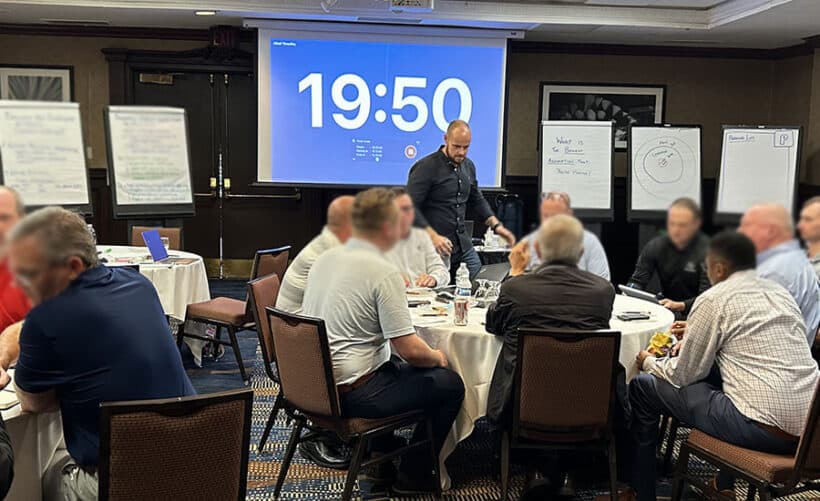We recently shared a case study following our work with a US-based organisation who had achieved some success with OKRs in 2023 but needed external support to ensure a successful adoption and execution of OKRs in their day-to-day ways of working.
In this post, we’re going to share some of our key learnings from the 12 week project.
Our Key Learnings
1. It’s not about doing OKRs “right”, it’s about doing them right for you
There is no one-size-fits-all when it comes to being successful with OKRs. The success of your OKR adoption will hinge on how well people understand OKRs and secondly, how well they can execute against them. OKRs will help you to establish a culture of learning and experimentation through your efforts to achieve your Key Results. A huge part of this learning and experimentation is figuring out how to get the most benefit from OKRs for your organisation. Having a tailored OKR training and implementation program with time to reflect is critical in achieving this.
While using OKRs in practice is often the best way to learn, having a clear understanding of the process and a coach available to help guide will ensure that you speed up the adoption and successful implementation of OKRs – in a way that is right for your organisation.
2. Don’t assume that well-written OKRs are the end goal
It is all well and good having great, well-crafted OKRs, but if you do not have a system in place to support the execution of them, you will likely become unstuck.
Consider answering the following questions:
- When will we measure OKR progress?
- How will we measure progress against our key results?
- What customer/stakeholder behaviours are our key results influencing?
- What tools will we use to support us?
- How will we execute cross-functionally?
- What support do we need to be successful? Do we need coaches?
- Do we have the competencies required to support the execution of OKRs?
- What are the potential barriers to being successful?
- How do we celebrate successes?
3. Conversations and feedback is easy, but don’t forget the recognition
In Measure What Matters, John Doerr discusses the concept of CFRs – Conversations, Feedback and Recognition. As part of your change management plan supporting your OKR adoption, do not underestimate the power of continuous recognition. Reinforcement is required to sustain change in any organisation and recognition can be a key tool to achieve this.
Consider making your OKR reviews a celebratory event, highlighting the achievements of teams as they make progress in their key results on the way to achieving their OKRs. Take time to consider how OKRs can be part of your performance management system without compromising integrity – can you recognise people’s efforts in delivering the initiatives that drive the key results as opposed to incentivising the OKRs themselves?
4. Cultural change is needed
OKRs are more than just a goal setting tool and execution process – they are a driver for cultural change across the entire organisation.
Many organisations are drawn to the OKR framework as it is relatively easy to understand and get started with. However, many organisations underestimate just how difficult it is to master.
Committing to the OKR framework will transform how you collaborate, prioritise, set goals and execute, and can lead to cultural change within the organisation. OKRs promote a culture of transparency, collaboration, agility and a data-first mindset.
Avoid the mistake of thinking that you will be successful with OKRs just by adding the OKRs metrics to a spreadsheet, report or dashboard by supporting the change with a well thought out change management plan to support your people in this new way of working.
Deep Dive Into The OKR Methodology
If you’re looking to gain a greater understanding of how to create well-written OKRS and how to successfully execute against them, consider signing up for our one-day OKR workshop.
Try our AI-powered strategy and OKR assessment tool to self-assess your strategy and OKR maturity.


